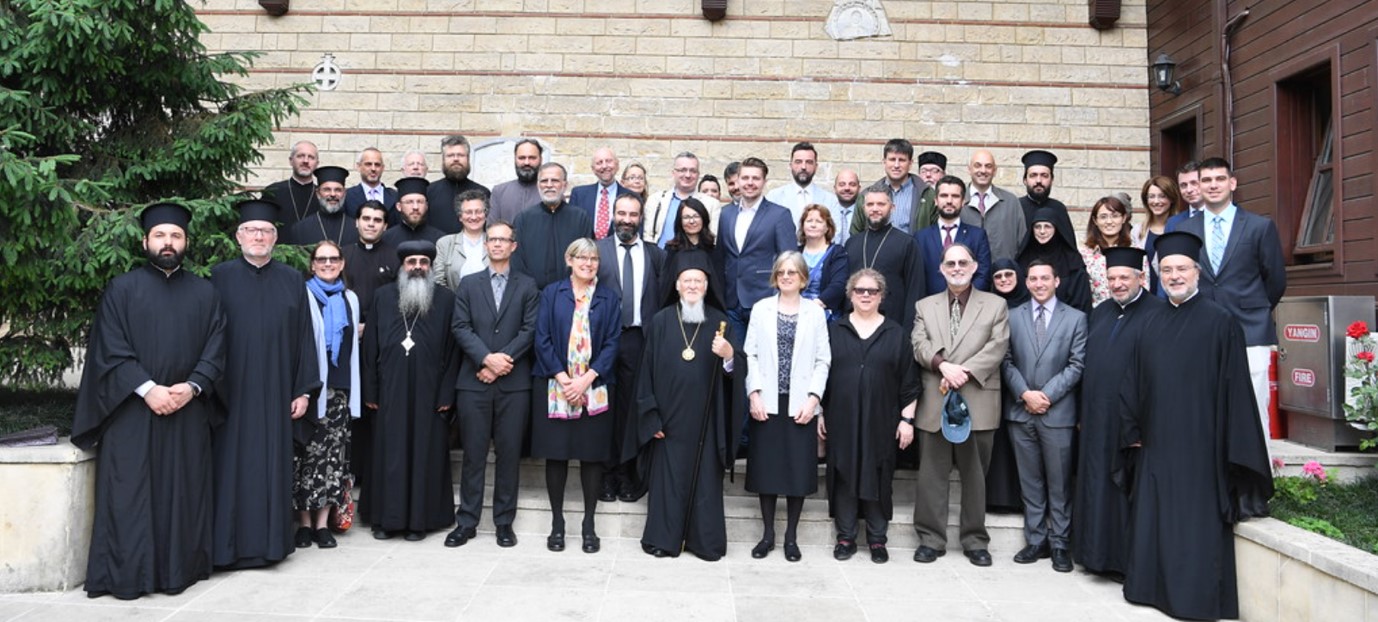- Home
- About us
- Students
- Courses
- Research
- Library
- News & Events
- Gallery
- Contact
- Our Blog
Latest News

Third Halki Summit
Jun 04, 2019
admin
Third Halki Summit

His All-Holiness Ecumenical Patriarch Bartholomew recently hosted the 3rd Halki Summit in Istanbul, Turkey, from 31 May to 3 June. Amongst the fifty delegates from more than forty religious institutions, St Andrew’s Greek Orthodox Theological College was also represented by Mr Basilios Psilacos.
The theme of Halki Summit III, “Theological Formation and Ecological Awareness” aimed at promoting environmental sensitivity in the core curricula of Theological Colleges around the world and exploring ways in which programs might be implemented into Orthodox education more broadly. Distinguished speakers included His Eminence Metropolitan John (Zizioulas) of Pergamon, and Professors Celia Deane-Drummond, Elizabeth Theokritoff, Barbara Rossing and Fred Bahnson. These Summits are part of the long-standing initiatives by the Ecumenical Patriarchate spanning more than a quarter of a century which have resulted in raising greater ecological awareness through dialogue and conversation not only amongst Christian Churches but society more broadly. To date, the Ecumenical Patriarch has convened five educational seminars at the Theological School of Halki, as well as nine international, interfaith, interdisciplinary symposia in the Mediterranean, Europe, Greenland, Latin American and the United States.
His All-Holiness welcomed participants to “the Queen of Cities” and reminded participants that, amongst other things, “we are interconnected with the rest of God’s creation, how responsible we are for the protection of our planet, and how critical our choices and actions are for the sustainability of our children’s future. We are convinced that any ray of hope of reversing climate change and addressing the environmental challenge requires a radical transformation of the way we perceive and treat our planet.”
.jpg)
The Patriarch continued by emphasising that change needs to take place in the earliest stages of people’s formation and for this reason decided to bring together representatives of theological institutions who will sow the seed in aspiring future priests and leaders. He noted that, “most especially and essentially, the significance and sacredness of God’s creation must be an integral element of every word that we proclaim regarding the One who made the world and everything in it … This is the wider cosmic lens through which we should perceive God and creation. This is the ethos with which we should teach theology in seminaries. This is how we should preach sermons during liturgies. This is how we should instruct our children in Sunday Schools and our adults in catechumen classes.”
During the Summit opportunity was given to all participants to share experiences and expectations, discuss ways in which this worldview might be nurtured in the different Theological Schools represented, and more specifically what initiatives might be taken to develop more eco-theological curricula.

.jpg)





.png)